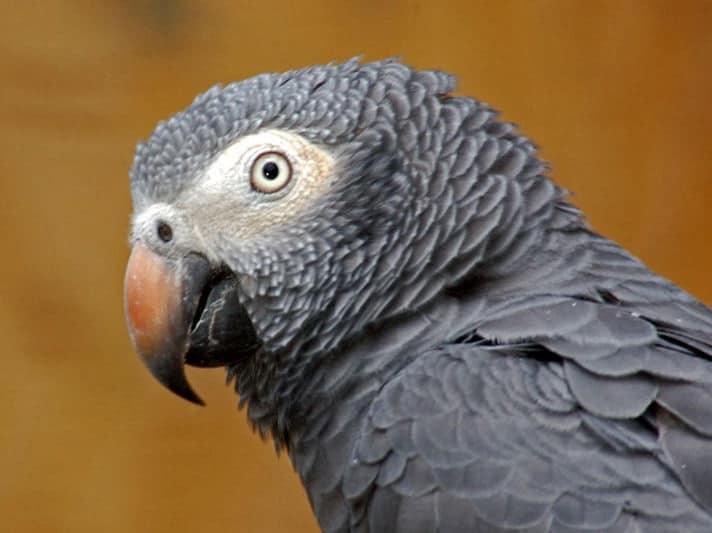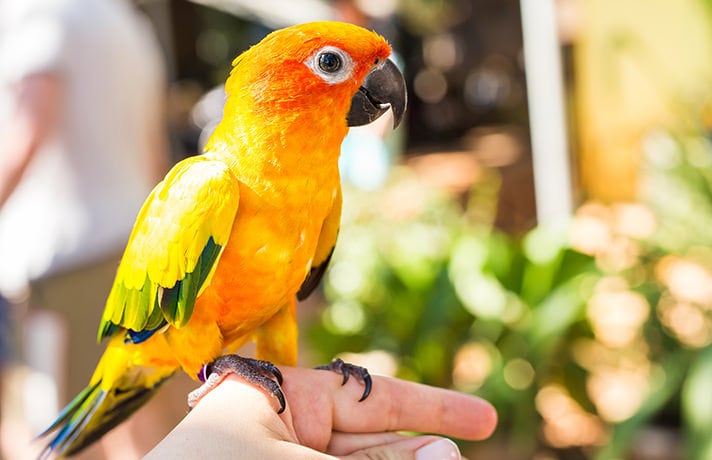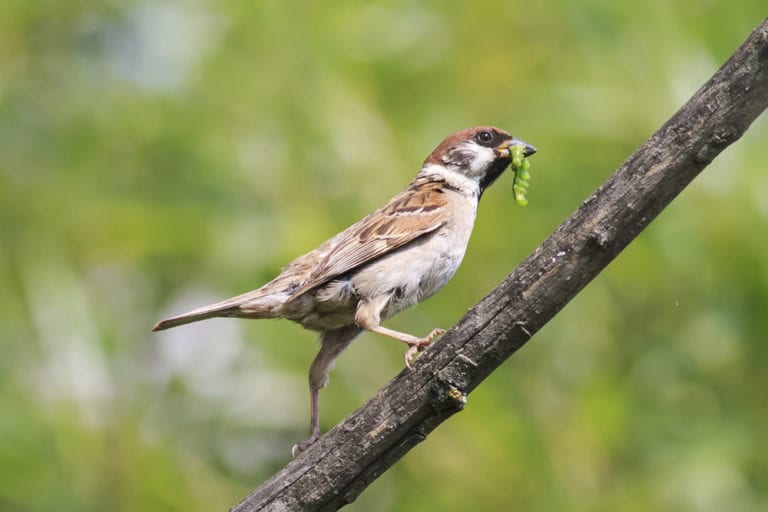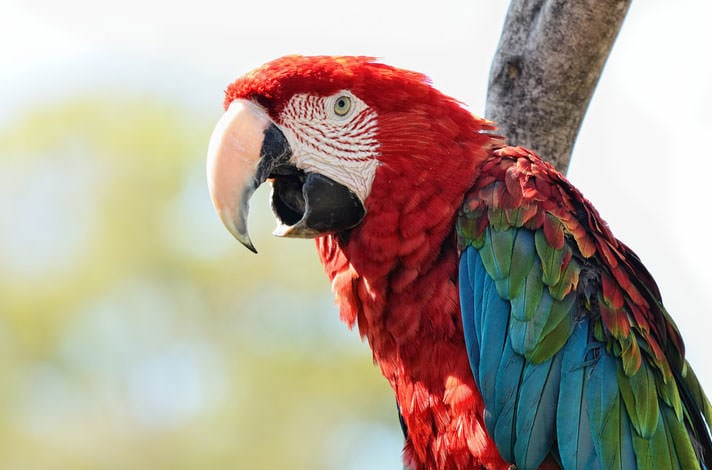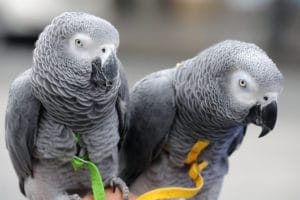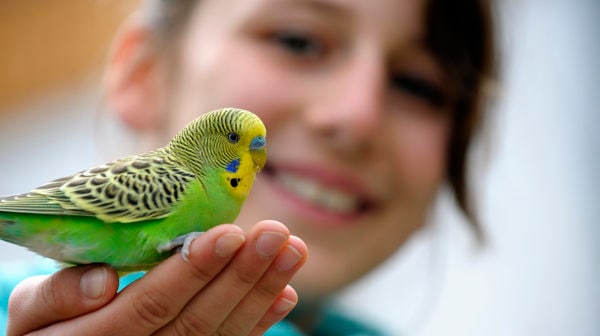Description:
Concussions, fractures or lacerations can all occur with head injuries. Birds can often recover quickly from seemingly serious head injuries.
Symptoms:
Night frights causing a bird to fall of its perch, seizures, flying into objects such as ceiling fans, mirrors, windows or walls, or falls from great enough of a height can all result in head trauma.
Immediate Care:
Visually examine your bird immediately after an incident to check for alertness and neurological signs. Check your bird for signs of shock and examine the cranium, eyes, ears, beak and nares for fractures, bleeding, laceration or bruising. Move the bird to a dark, quiet environment and call your avian vet or after-hours facility to notify them that you are bringing in your bird. Stop any bleeding with direct pressure and a gauze square, making sure to not restrict the outward breathing by the keel. Sometimes, a bird that flies into a window or mirror may not only sustain a head injury, but may also suffer from a compression fracture to one or more vertebrae in the neck. Radiographs may be useful in determining additional injuries.
Long Term Care:
Birds in shock after a head injury should receive IV fluids (or via intra-osseous catheter) but at a fraction of the normal volume to avoid over-hydration. Antibiotics and short-term corticosteroids are usually administered with head injuries, but after several days of no improvement, neurological damage may be permanent. Steroids should only be used when there is a true need, as their injudicious use may cause immunosuppression and other problems. Click on the body part or body system where your pet bird is having problems. For example, if your pet bird is experiencing diarrhea, click on Digestion. If you don’t know what is wrong with your pet bird, search by Sign. If your pet bird has already been diagnosed, search by Ailment.
Posted by: Petcha EditorsFeatured Image: Via Ettore Balocchi/Flickr
Share:
